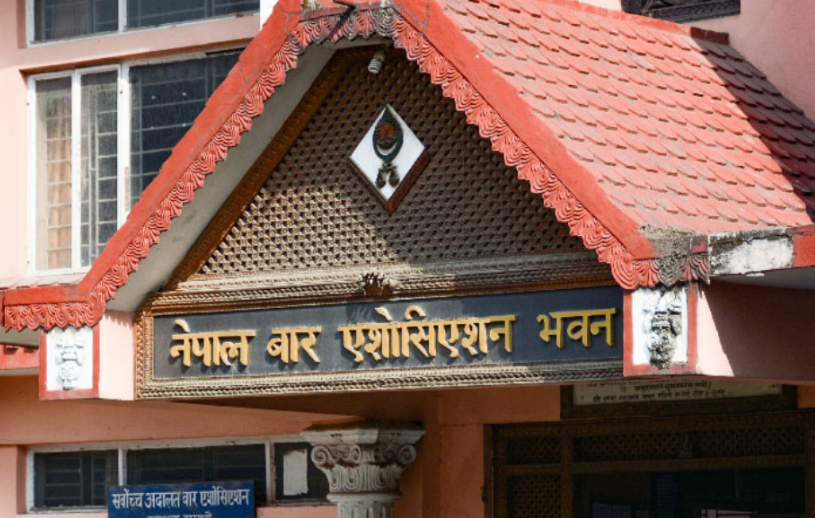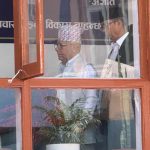Kathmandu: Nepal Bar Association has lambasted ‘Order of Precedence Bill-2023’, saying the bill seeks to undermine the independence and supremacy of judiciary.
The bill, which was lodged in National Assembly on March 19, has the provision to rank the chief justice of Supreme Court in the fifth order of precedence. Whereas, the existing ‘Order of Precedence’ places the chief justice in the fourth order after prime minister. But, the proposed bill places Speaker of the House of Representatives and chairperson of the National Assembly in the fourth position.
And, the new provision to rank the chief justice fifth in the order of precedence has angered the judiciary and Nepal Bar Association. The latter has also issued a press release, criticizing the draft bill.
The proposed bill-registered by National Assembly members Devendra Dahal, Gopi Achhami, Tul Bahadur Bk, Prakash Panth, Pramila Kumari and Beduram Bhusal- is an attempt to undermine the independence and supremacy of the Supreme Court, Bar said.
‘Regarding the bill, Nepal Bar Association would like to express its objection to it, with serious attention to the matter’, the press release read, ‘The association firmly concludes that the change in the order of precedence regarding the head of the judiciary- which is also a main body of the state- contradicts the principle of separation of power, the spirit of the constitution and prevalent practices.’ The press release further stated, ‘Therefore, Nepal Bar Association would like to draw the attention of all stakeholders-including the Government of Nepal and federal parliament- to correct the wrong provision of the draft bill by revising it as soon as possible.’
‘The bill is a move against democracy’
The bill has also drawn criticism from other sectors as well. Anthropologist Janak Rai called it ‘unnecessary’ and ‘a new version of caste system in the republic’. ‘Society has seen a lot of modernization over the past 7 decades but the people in the power have always hesitated to change themselves’ he said, ‘Instead, they have tried to impose old styles and ways in new forms, and the bill is one of them.’
‘We have faced such forms in various political eras. There was a hope that things will change in the republican era but we have not stopped repeating the old laws with shiny colors’, Rai added, ‘This shows that our power-hungry political leadership has not been institutionalized in the same way society is changing.
Likewise, for sociologist Dinesh Prasai, the bill symbolizes the fact that our leaders are neither committed nor responsible to democracy and people. ‘They want to concentrate all power in their hands,’ he said, ‘It means our leaders are not committed to modern democracy.’
Prasai stressed the fact that people are supreme in democracy and said, ‘But leaders want to be themselves supreme and this bill is a move against democracy and people.’
Leaders are accustomed to acting against the principle of ‘check and balance’, Prasai added, ‘They don’t want check and balance. If this happens, they think they will be weakened or subdued. So, they think that they should be above and beyond all of us. With such motives, they favor or forward this kind of bills and it is really lamentable.’
Prasai viewed democracy as the best system in modern times, but leaders are not responsible to it. ‘This kind of irresponsibility makes the society stagnant’, he concluded, ‘This affects not only the leaders, but also the grass-root people.’











